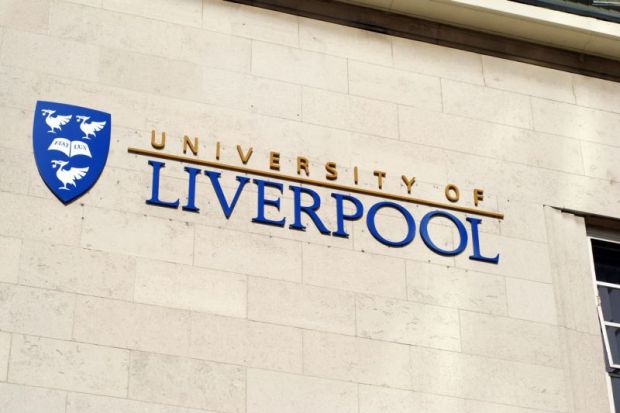Professors at the University of Liverpool have accused the institution’s leadership of devaluing its degrees with plans to award grades during a marking boycott linked to proposed redundancies.
In a letter to Liverpool’s council and senate, 61 professors from the Faculty of Health and Life Sciences say that the proposed approach raised “fundamental issues about university governance”.
Members of the University and College Union at Liverpool are currently undertaking a marking boycott, which follows three weeks of strike action, in opposition to redundancies in the faculty. Originally 47 jobs were set to go, but that has been reduced to 21.
The institution has pressed on with plans to award students their end-of-year grades despite the marking boycott, but the professors say that this would “devalue degrees awarded by the university”.
Many external examiners have quit amid the dispute and, without them, “no decisions can be made by the board of examiners in accordance with university policy”, the letter says.
“It would therefore appear that many degrees, diplomas or certificates cannot be awarded,” it says.
The letter also criticises the decision to award students their grades based on the 90 credits they have completed, rather than the usual full 120. “Even for degree programmes where there are external examiners, we cannot see how these examiners would be able to scrutinise decisions and endorse University of Liverpool degrees under these circumstances,” the professors say.
The letter also claims that the university has breached its own redundancy procedures during the restructure, called Project Shape. Legally, “it is the post and not the person that is redundant. Yet here, staff have been selected on the basis of their perceived research performance, and the type of research work they are doing has not been considered,” the letter says. Rather, Louise Kenny, the executive pro vice-chancellor of the faculty, has said that the purpose of the redundancies is to create “headroom” for Project Shape, they write.
The decision to make staff redundant on the basis of research income has proved controversial already and the professors add that there is also nothing set out in the university’s role expectations “that proscribes a level of research income”.
“To assess staff and to select those for redundancy on a set of target grant incomes which have not been previously defined, let alone agreed with staff, cannot be right,” the letter says.
The concerns about the university’s assessment plans were echoed in a letter sent to the senate by a group of academics appointed to be external examiners at Liverpool.
They say that the plans, which also include suspending secondary marking and moderation of students’ work, or having work marked by someone who doesn’t teach the module, are bypassing the institution’s code of practice and “detrimentally impacting quality of assessment and disadvantaging students”.
“We see that students will be affected unevenly and treated differently” as a result of the marking mitigations, the letter says. Incomplete or inaccurately graded transcripts could affect final-year students looking for jobs, while first- and second-year students will miss out on valuable feedback that could disadvantage their future studies, the letter adds.
“We ask you to take decisive steps to resolve the dispute with the trade unions, to enable marking and assessment to be conducted in fair ways,” they write. The is a “real possibility that the university’s approach to redundancy will come at a very high cost to the quality of teaching and to the value of its degrees”.
The University of Liverpool has been approached for comment. Speaking previously, a spokesman said the marking boycott “has the potential to cause significant undue stress and disruption to our students”.
“We appreciate that the decision to take [action short of a strike] will not be taken lightly. Nonetheless, we hope we can continue to support our students and avoid undue disruption,” he said.
Register to continue
Why register?
- Registration is free and only takes a moment
- Once registered, you can read 3 articles a month
- Sign up for our newsletter
Subscribe
Or subscribe for unlimited access to:
- Unlimited access to news, views, insights & reviews
- Digital editions
- Digital access to THE’s university and college rankings analysis
Already registered or a current subscriber?











